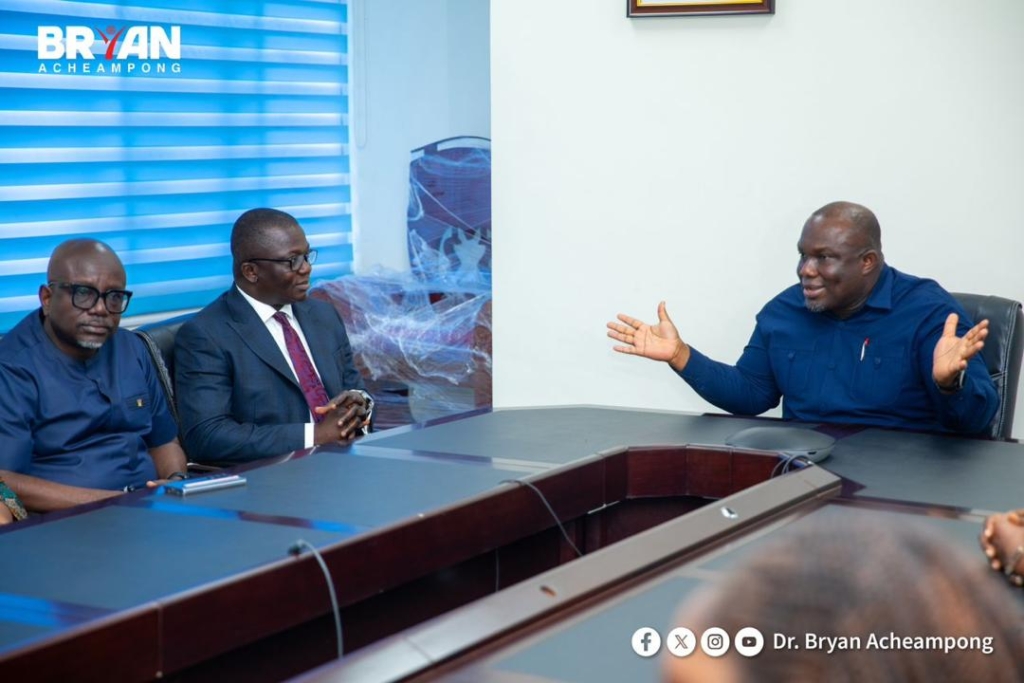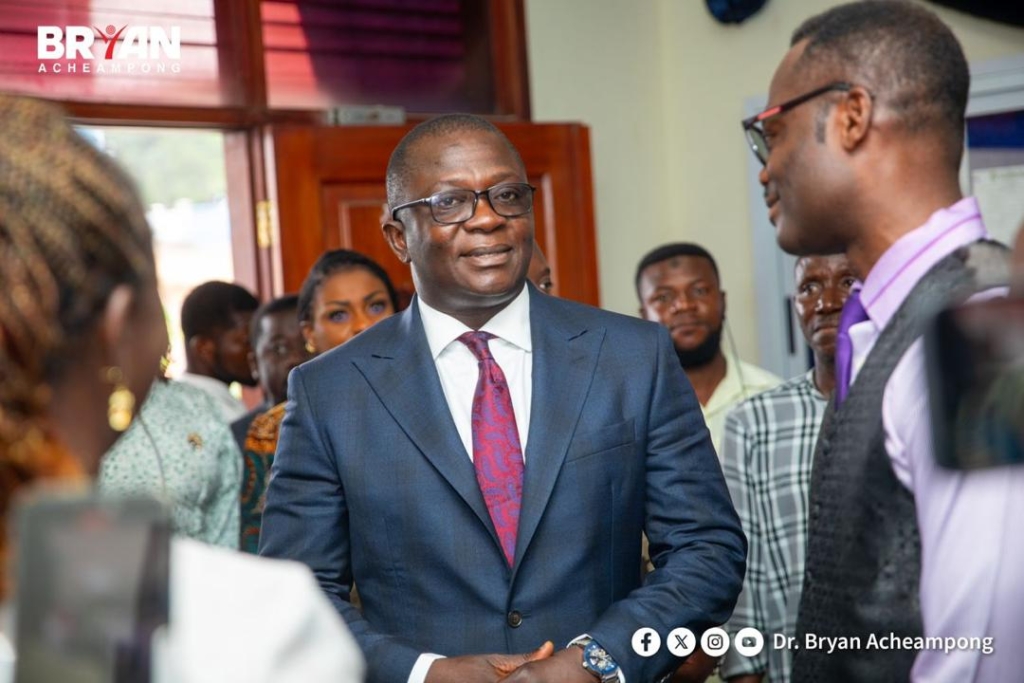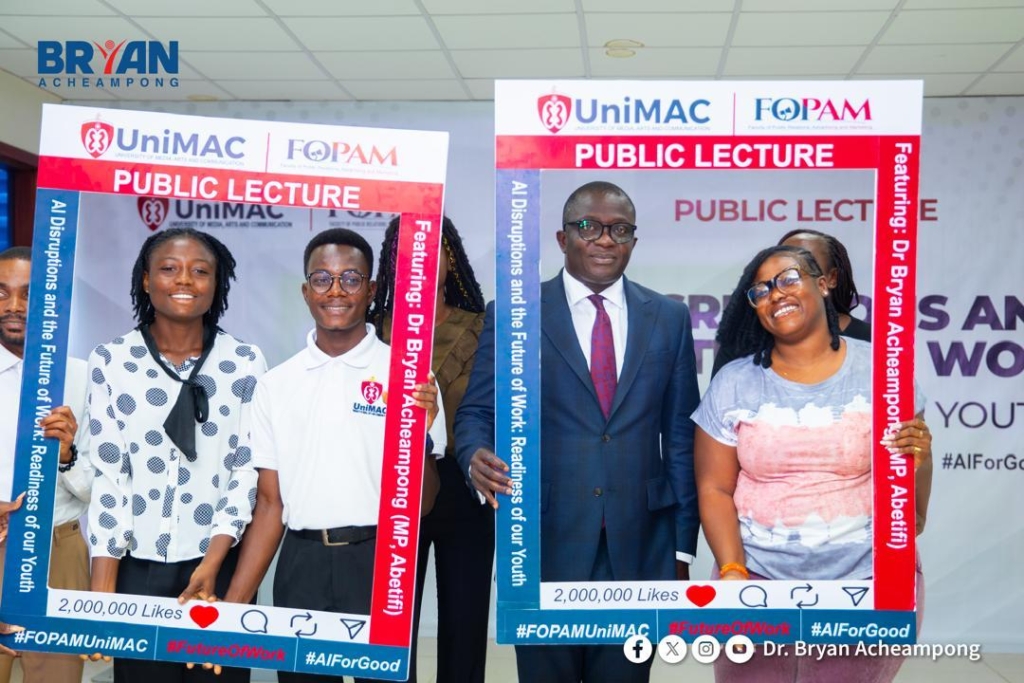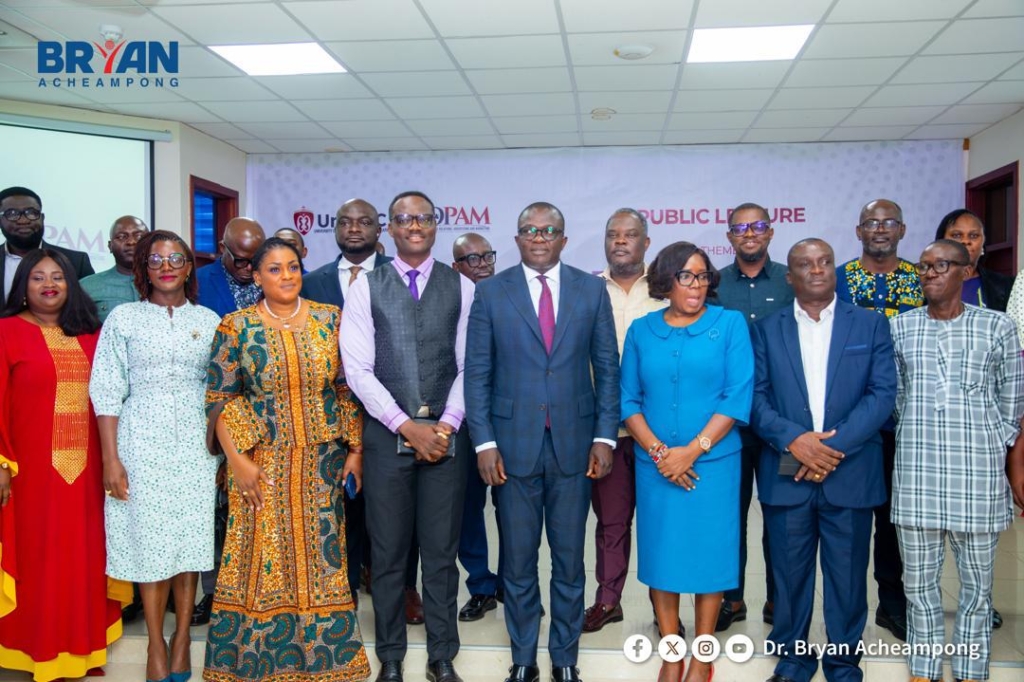General
The future of work belongs to humans who know how to work with machines – Dr Bryan Acheampong
The Member of Parliament for Abetifi, Dr Bryan Acheampong, has told Ghanaian youth that the future of work will not be defined by machines alone, but by people who can effectively collaborate with them. Speaking at a public lecture hosted by the University of Media, Arts and Communication on Thu...
MyJoyOnline
published: Jun 26, 2025


The Member of Parliament for Abetifi, Dr Bryan Acheampong, has told Ghanaian youth that the future of work will not be defined by machines alone, but by people who can effectively collaborate with them.
Speaking at a public lecture hosted by the University of Media, Arts and Communication (UniMAC) on Thursday, June 26, 2025, Dr. Acheampong called on students, educators, and policymakers to rethink how they prepare for the rapidly changing digital economy.
Delivering the lecture on the theme “AI Disruptions and the Future of Work: Readiness of Our Youth,” Dr. Acheampong emphasised that the rise of artificial intelligence (AI) should not spark fear, but rather fuel a transformation in how Ghanaians learn, work, and innovate.

“AI will not eliminate human value—it will amplify it,” he told the packed auditorium. “The future belongs to those who know how to work with machines, not compete against them.”
He explained that while machines are becoming smarter, faster, and more capable of performing tasks that once required human effort, they still lack the intuition, empathy, creativity, and ethical reasoning that define human intelligence. The real power, he said, lies in combining machine efficiency with human insight.

Dr Acheampong urged students to see AI not as a replacement, but as a partner—one that can help them do more, think faster, and solve problems that were once too complex or time-consuming.
He shared how AI is already being used to write scripts, analyse audiences, automate editing, and detect fake news in the media and communication industries. However, he stressed that these tools are only as effective as the humans guiding them.
“We don’t need to fear losing jobs to AI—we need to fear losing relevance if we don’t learn how to use it,” he said. “The most employable graduates will be those who can harness AI to extend their abilities.

Dr. Acheampong called for urgent reform in Ghana’s education system, saying that classrooms must evolve to develop critical thinkers, not just content recallers. He urged universities to shift toward teaching design thinking, ethical decision-making, digital collaboration, and AI fluency.
He also encouraged interdisciplinary learning, where students from diverse fields such as journalism, agriculture, healthcare, and business learn how AI applies to their sectors. According to him, the true promise of AI lies in how it helps humans work smarter and more meaningfully—whether in government, media, industry, or entrepreneurship.

“A machine may help you draft a story or recommend a campaign strategy,” he explained, “but only you can understand the context, shape the message, and connect with human emotions. That’s where your value lies.”
Dr Acheampong acknowledged the concerns many young people have about automation, especially in a country like Ghana, where job security is already fragile. But he urged them to shift from a mindset of fear to one of adaptation and opportunity.

Faculty and students described the lecture as empowering and timely. Many said they were leaving with a renewed sense of purpose and a clearer understanding of how to position themselves in the digital future.
In his closing remarks, Dr. Acheampong emphasised that the future of work is not something to wait for—it is already here. And the winners will not be those with the fanciest degrees, but those who are flexible, digitally literate, and open to learning from both humans and machines.
“The machines are not coming,” he concluded. “They’re already here. The question is: will you learn how to work with them, or watch from the sidelines?”
Read More